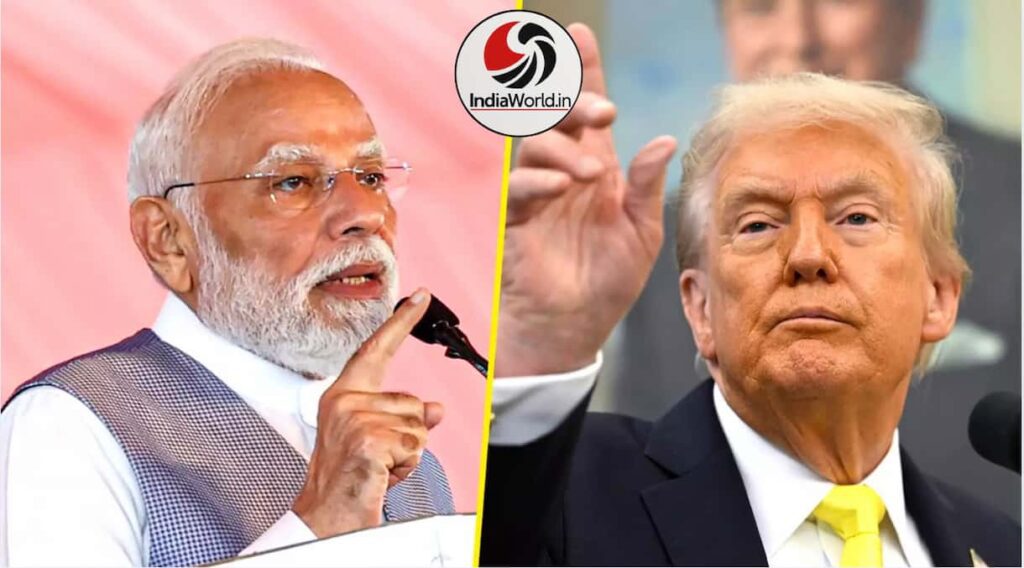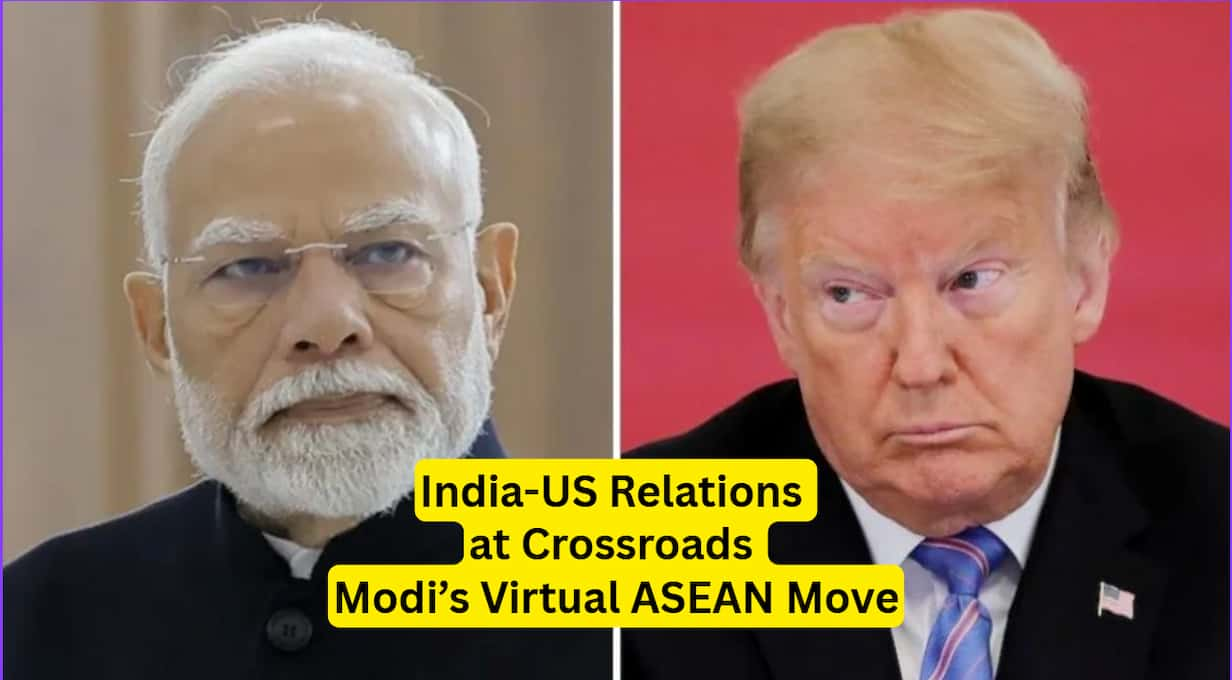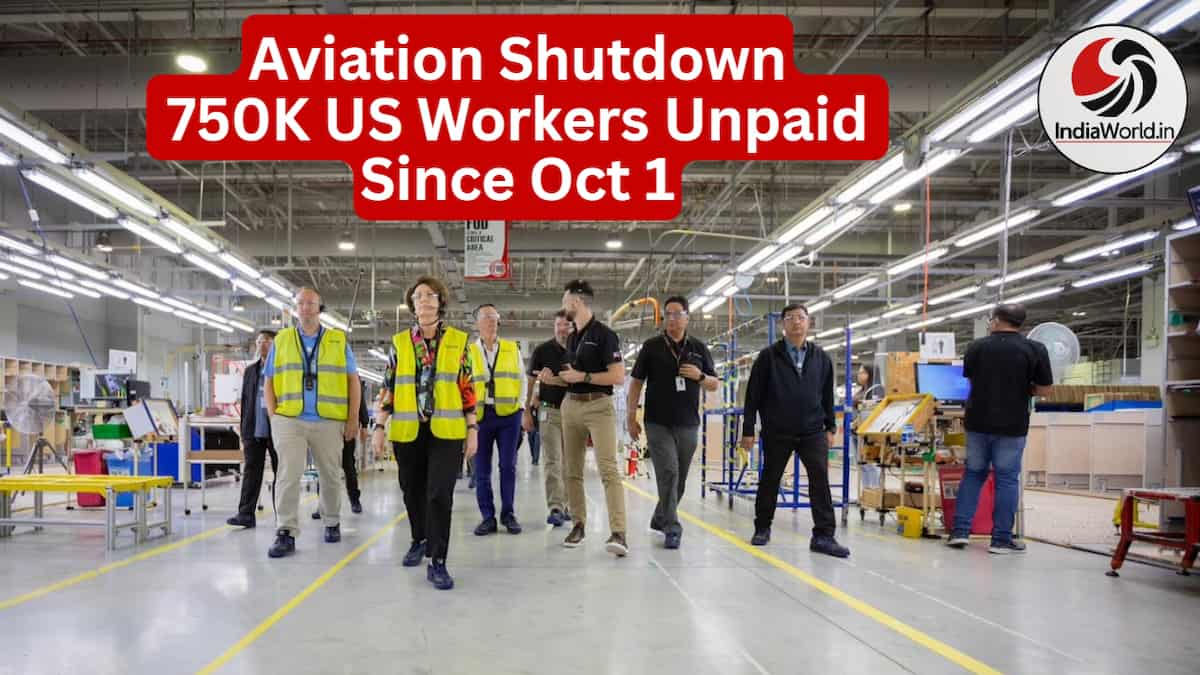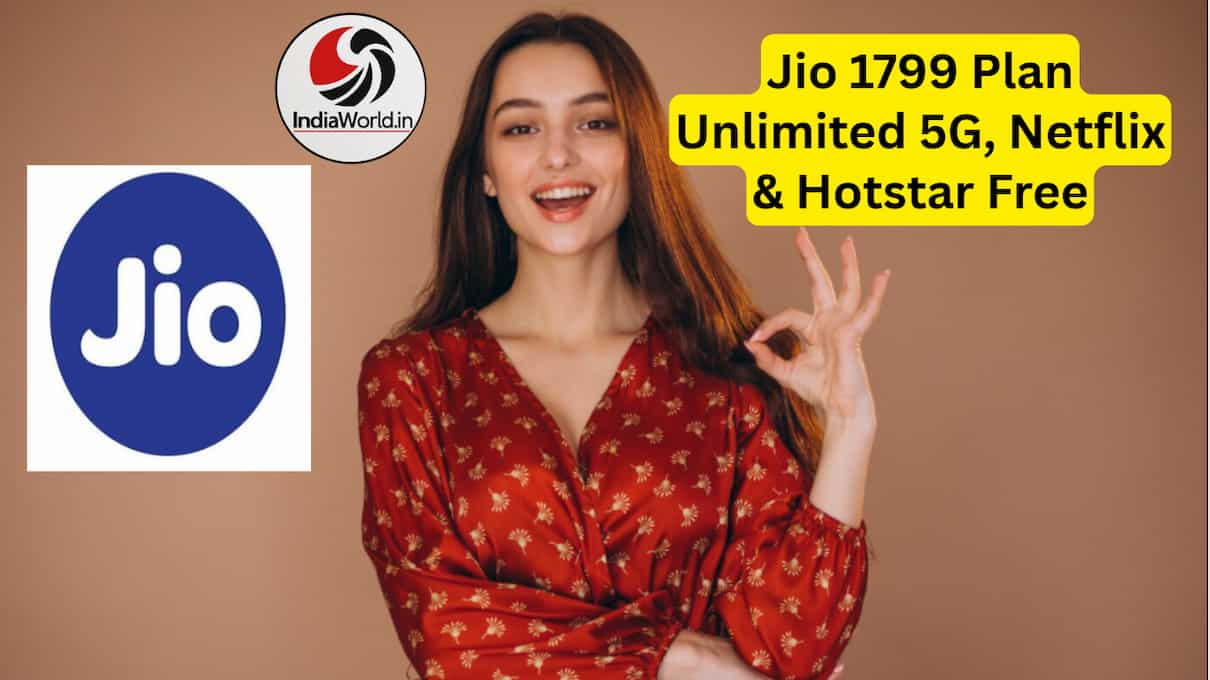Modi’s ASEAN No-Show & India-US Relations: What Lies Beneath
When Narendra Modi decided not to travel to Kuala Lumpur for the 47th ASEAN Summit — instead attending virtually — the explanation given was simple: India’s Diwali celebrations. Yet behind the surface lies a deeper story of Modi Trump India US relations, shifting trade and strategic ties, and a rapidly evolving global diplomacy.
As Anwar Ibrahim, the Malaysian Prime Minister, said: “He informed me that he will attend virtually due to the ongoing Deepavali celebrations in India.” He added “I respect his decision” as he extended greetings for the festival. Meanwhile, Modi confirmed that he would join the ASEAN-India Summit virtually and look forward to deepening the Comprehensive Strategic Partnership between India and ASEAN.
But this action invites bigger questions: Is the Diwali explanation the full story? How does this tie into India’s complex relationship with the Donald Trump-led United States? What does it reveal about India’s foreign-policy direction and its trade ties with the U.S.?
ASEAN Summit & Malaysia: The Immediate Context
In the lead-up to the 47th ASEAN Summit (scheduled Oct 26-28 in Kuala Lumpur) Malaysia extended an invitation to various world leaders, including the U.S. President. The Malaysian Prime Minister noted that Modi would attend virtually because of Diwali. Meanwhile, Modi posted on X:
“Had a warm conversation with my dear friend, Prime Minister Anwar Ibrahim of Malaysia. Congratulated him on Malaysia’s ASEAN Chairmanship and conveyed best wishes for the success of upcoming Summits… Look forward to joining the ASEAN-India Summit virtually, and to further deepening of the ASEAN-India Comprehensive Strategic Partnership.”
On the surface it appears courteous and ceremonial. But beneath, the optics and realpolitik matter: by not being physically present, Modi forgoes face-to-face encounters with many global leaders. And that in turn may reflect larger strategic calculations.
India-US Relations: From Warm Ties to Tension
At one time, the relationship between Modi and Trump was full of warmth and spectacle — remember the “Howdy Modi” event in Houston in 2019. But recent analyses show the tide is turning.
Trade & Tariff Frictions
Trump’s administration slapped heavy tariffs on India, partly as retaliation for India’s purchase of Russian oil. These trade tensions are undermining what had been a robust strategic partner narrative between India and the U.S.
Strategic Ambiguity
India has sought to maintain strategic autonomy: balancing relationships with the U.S., Russia, China, and other powers. That independence may be viewed in Washington as less reliable than before.

The Opportunity Cost of the ASEAN Summit Absence
By skipping the Kuala Lumpur meeting, Modi sidesteps the chance for spontaneous bilateral limelight with world leaders — including Trump — which could send signals about the India-U.S. axis. As a senior opposition leader in India suggested, it may reflect a calculation about optics:
“Posting messages in praise of President Trump on social media is one thing. But to be seen hobnobbing physically with the man … is another matter. It’s far too risky for him.”
Deeper Motivations: Diplomacy, Trade & Optics
Why might Modi choose virtual attendance rather than in-person? A few inter-linked factors:
- Festival timing: Diwali is hugely symbolic in India, and appearing abroad during the celebrations may subject him to domestic critique.
- Trade tensions with the U.S.: With the U.S. threatening or imposing steep tariffs on Indian exports, physical proximity with Trump could raise awkward questions.
- Diplomatic signalling: Attending virtually may be a subtle message that India values its independence and will not be seen too closely aligned for show.
- ASEAN-India priority: The move may reflect a prioritisation of India-ASEAN ties rather than India-U.S. theatrics.
Implications for India-U.S. Strategic Partnership
✅ For India
Modi’s decision hints that India is less willing to be seen as simply a junior partner in the U.S. orbit. It underscores India’s broader approach of multi-alignment and strategic autonomy.
⚠️ For the U.S.
For Washington, a physically absent Modi can read as less engaged, which may weaken the U.S.’s ability to leverage India as a counter-balance to China in the Indo-Pacific. Trade irritants further complicate the narrative.
🔄 For the Global Arena
This moment also affects how other countries perceive both India and the U.S. In ASEAN corridors, India might be sending a signal of equal partnership — rather than deference — and the U.S. may need to re-calibrate how it manages ties with New Delhi.
What’s Next? Key Watch-Points
- Trade deal trajectory: Whether India and the U.S. finalise a substantive trade agreement will be telling. Recently there are suggestions that progress is possible.
- Defence & security cooperation: India’s procurement decisions and joint military exercises with the U.S. will reflect commitment levels.
- Energy & Russian oil imports: The U.S. remains sensitive about India’s continued purchases of Russian crude — a key irritant.
- Public diplomacy & optics: How India manages major events alongside U.S. presence may become a metric for alignment.
- ASEAN-India axis strengthening: Modi’s virtual participation may underscore India’s pivot toward deeper engagement with Southeast Asia.
Conclusion
Modi’s decision to skip the ASEAN Summit in person, though explained as due to Diwali, sits at the intersection of festival symbolism, optics, and evolving India-U.S. diplomacy. It highlights the complexities of Modi Trump India US relations: gleaming headlines of friendship now tempered by tariffs, strategic recalibrations, and autonomous decision-making.
In the end, this moment underscores a broader truth: in the modern world, attendance matters — but optics, context, and what lies behind the move matter even more.
External Links :









